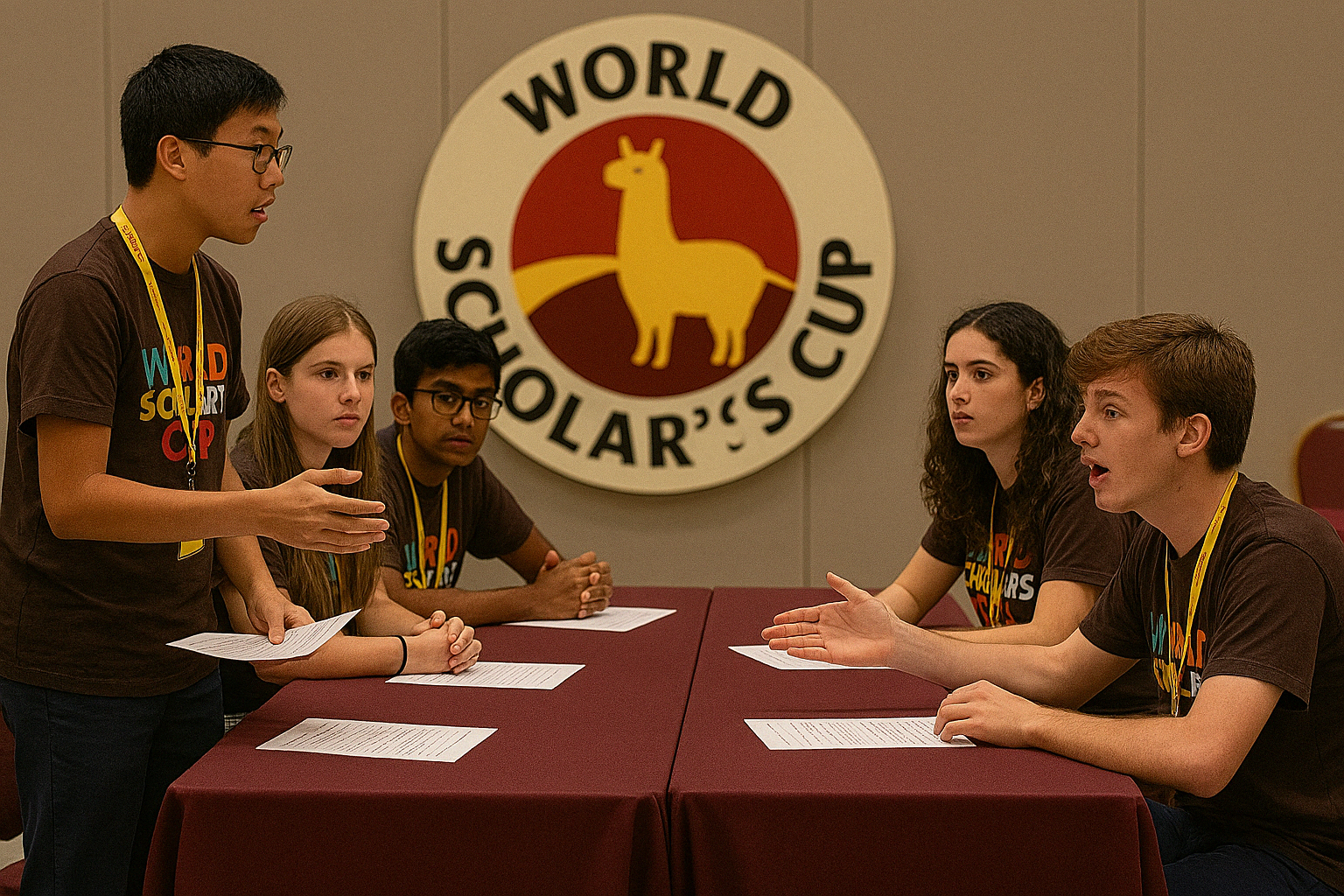
Team Debate
The World Scholar’s Cup (WSC) Team Debate is not your typical classroom debate—it’s a whirlwind of ideas, logic, humor, and alpaca energy. It’s where scholars from around the world take the stage to argue motions ranging from the philosophical to the ridiculous.
🗣️ Mastering the WSC Team Debate: Speak. Persuade. Triumph.
The World Scholar’s Cup (WSC) Team Debate is not your typical classroom debate—it’s a whirlwind of ideas, logic, humor, and alpaca energy. It’s where scholars from around the world take the stage to argue motions ranging from the philosophical to the ridiculous (“Resolved: That Romeo and Juliet would’ve had a better ending with social media”). Whether you’re a first-time speaker or a seasoned debater, this event challenges you to research fast, speak smart, and collaborate like never before.
🔍 Research: 15 Minutes to Think Fast
Before the debate begins, your team is handed a motion—a statement you must either support or oppose. You’ll also be told your side. Then comes 15 minutes of preparation time (10 for the final debate) where you and your teammates brainstorm, hunt for evidence, and plan your speeches.
During the first two debates, you can use your devices to research, so make it count! Gather facts, find quotes, and organize them into 2-3 solid points per speaker. For the final debate, it’s all brainpower—no tech, just notes, logic, and trust in your prep.
💡 Tip: Don’t Google blindly. Know your theme, anticipate topics, and prep a few example cases beforehand.
🎤 Speeches: 4 Minutes of Spotlight
Each team has three speakers, and every one gets up to 4 minutes to make their case. The order is:
- 1st Affirmative Speaker
- 1st Negative Speaker
- 2nd Affirmative… …and so on until the 3rd Negative Speaker.|
Your speech should include:
- An opening hook: A bold, funny, or emotional line to catch attention
- Main arguments: Clear, logical points backed by evidence
- Examples or analogies: Real-world connections
- A powerful conclusion: One that sticks in the judge’s mind
Even if your English isn’t perfect—don’t worry. Over half of WSC participants are EFL learners, and what matters most is clarity, structure, and confidence.
📖 Storytelling: The Secret Weapon
WSC debates aren’t just about facts—they’re about persuasion. The best debaters use storytelling to connect emotionally with the adjudicator. Want to argue against surveillance? Tell the story of a student whose life was changed by privacy. Arguing for alien politicians? Build a universe where Earth learns from the stars.
🐏 Remember: WSC judges love a good narrative. Humor, analogies, and passion matter as much as logic.
🔁 Rebuttals: Counter with Class
After the first speech, every speaker must give rebuttals—arguments that directly counter what the other team said. These usually come at the start of your speech. Effective rebuttals:
- Quote the opposition’s point
- Show why it’s flawed, misleading, or irrelevant
- Replace it with a stronger, clearer idea
Be respectful, not rude. The WSC is about building skills, not tearing down opponents.
🤝 Teamwork: One Voice, Three Speakers
Winning teams act like one brain with three mouths. Good teamwork means:
- Planning roles and order ahead of time
- Editing each other’s arguments
- Sharing research evenly
- Supporting each other during tough rounds
At the end of every round, teams even give each other constructive feedback. It’s a beautiful thing: win or lose, everyone grows.
